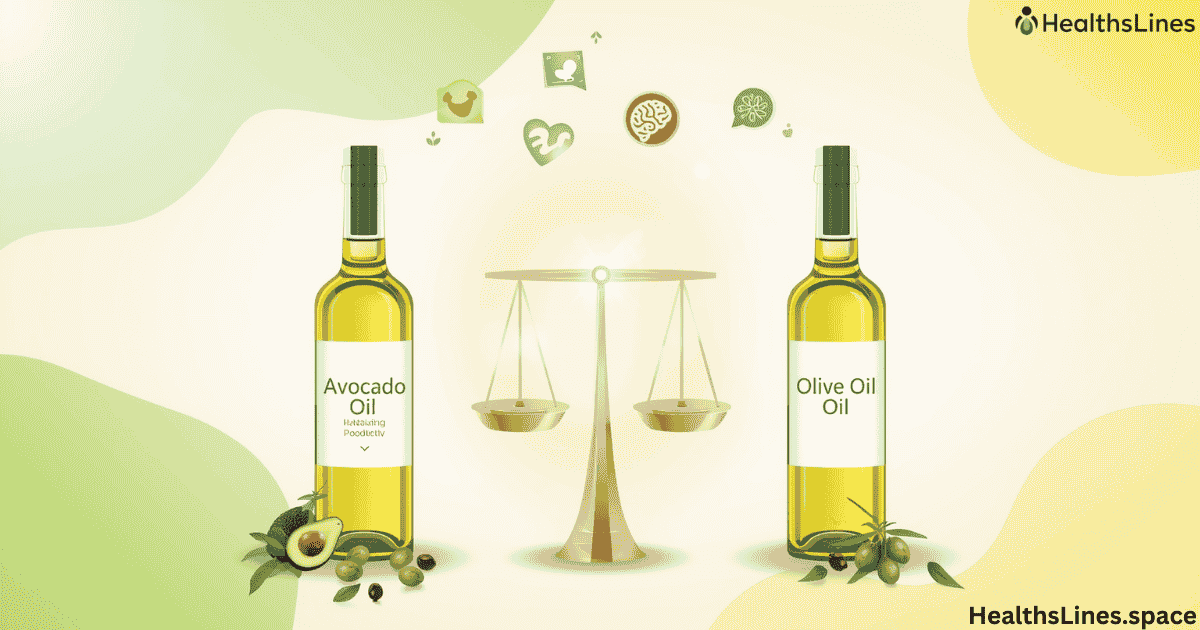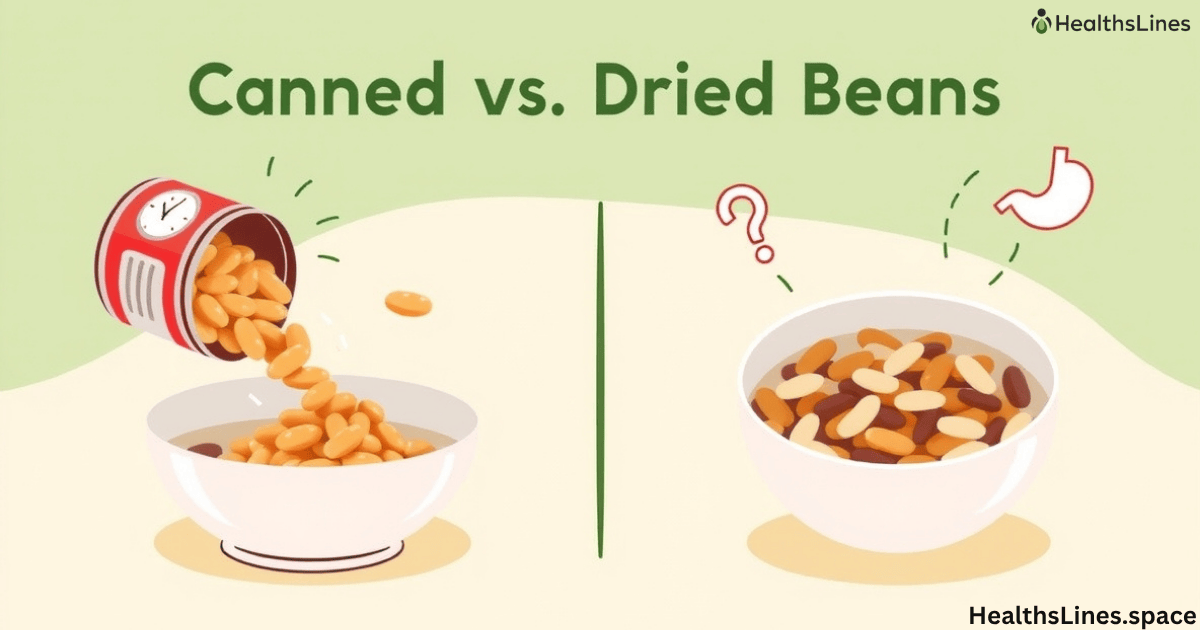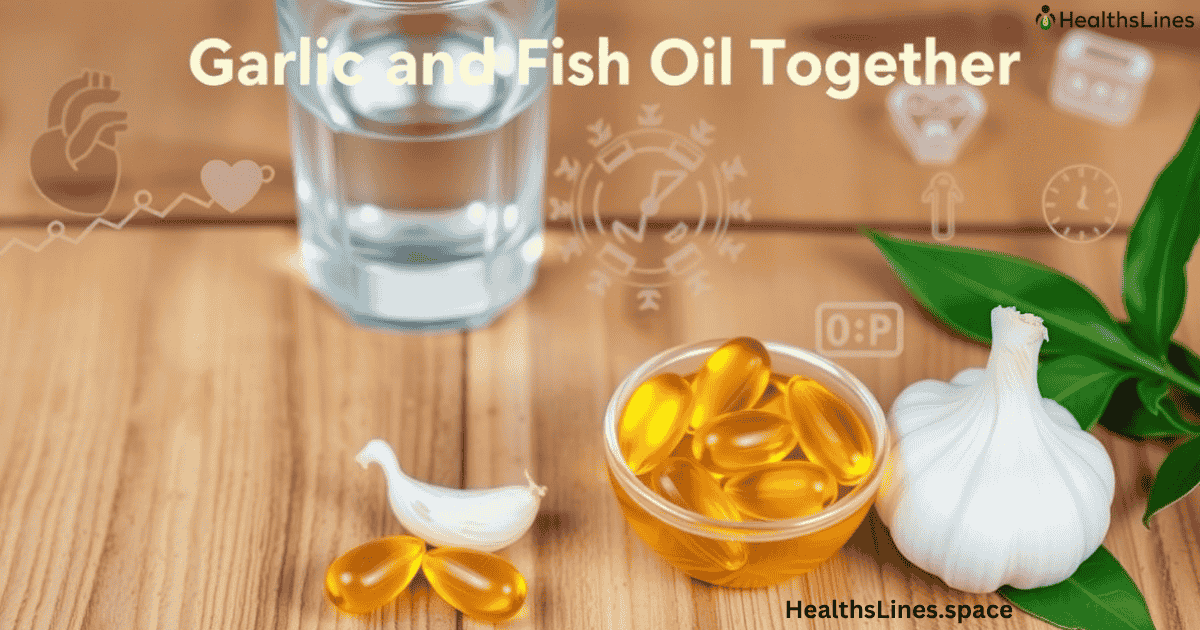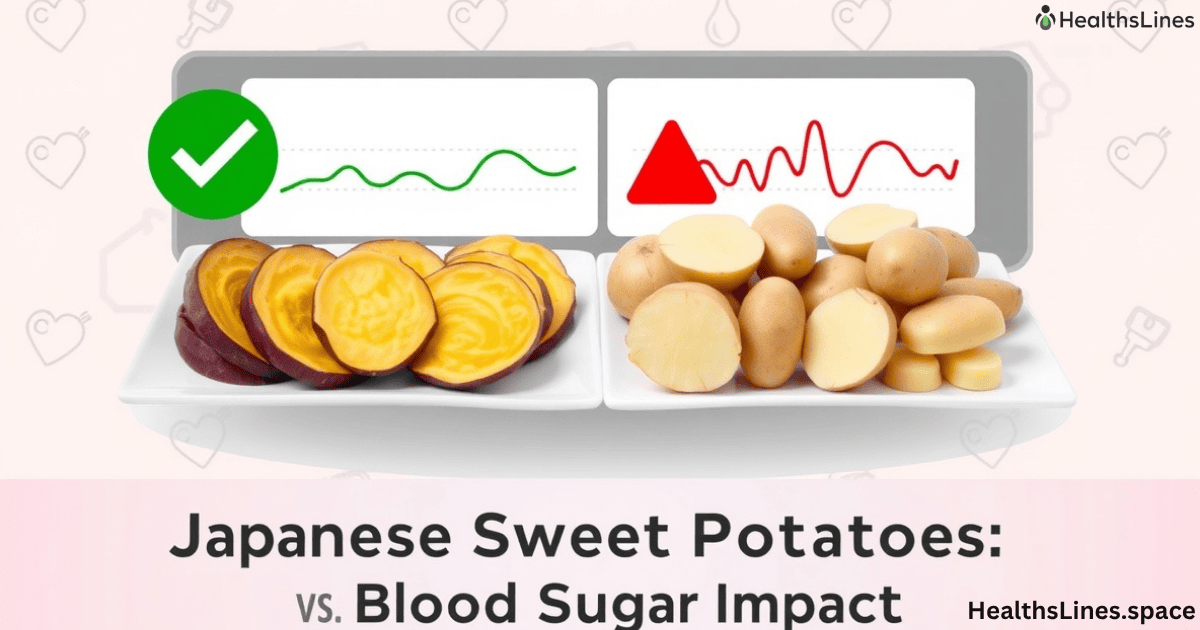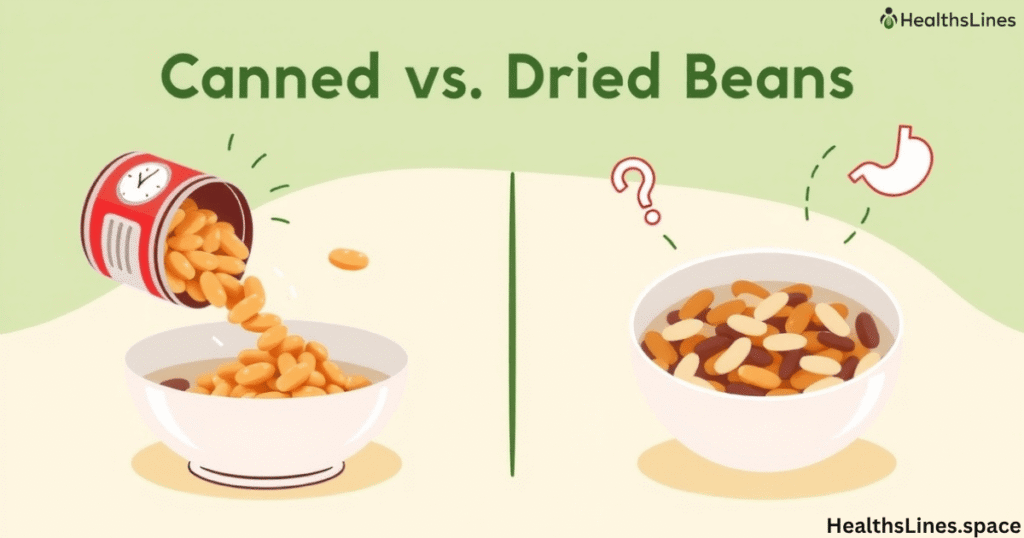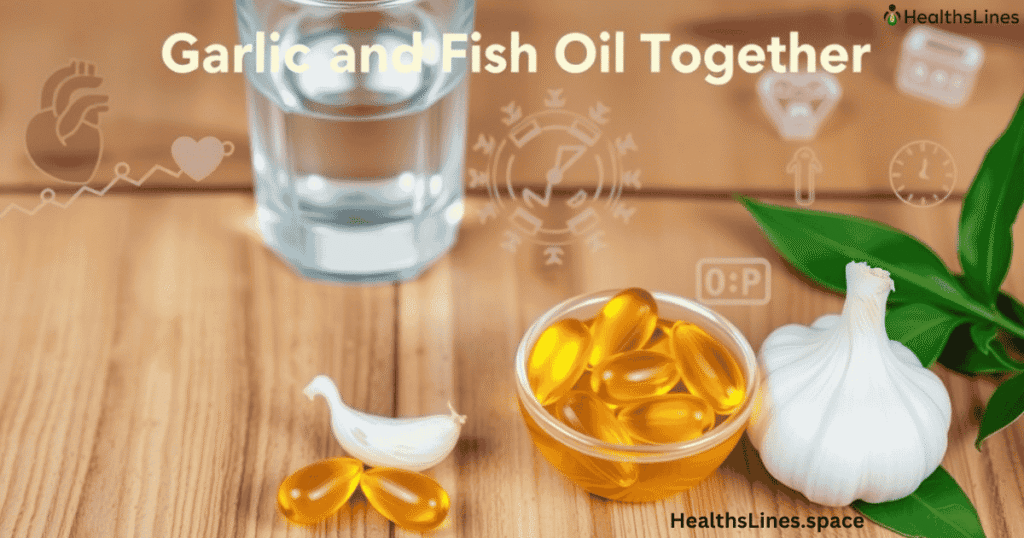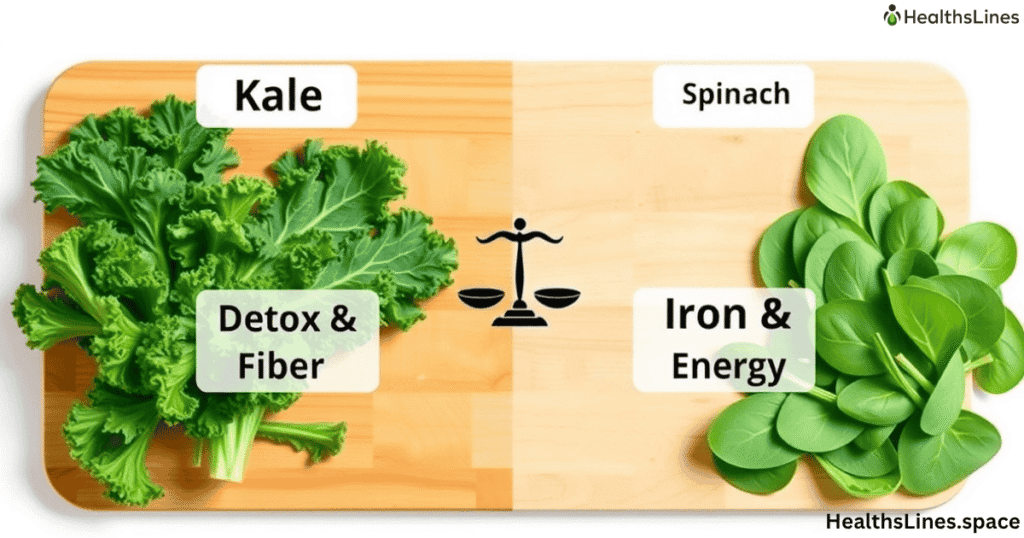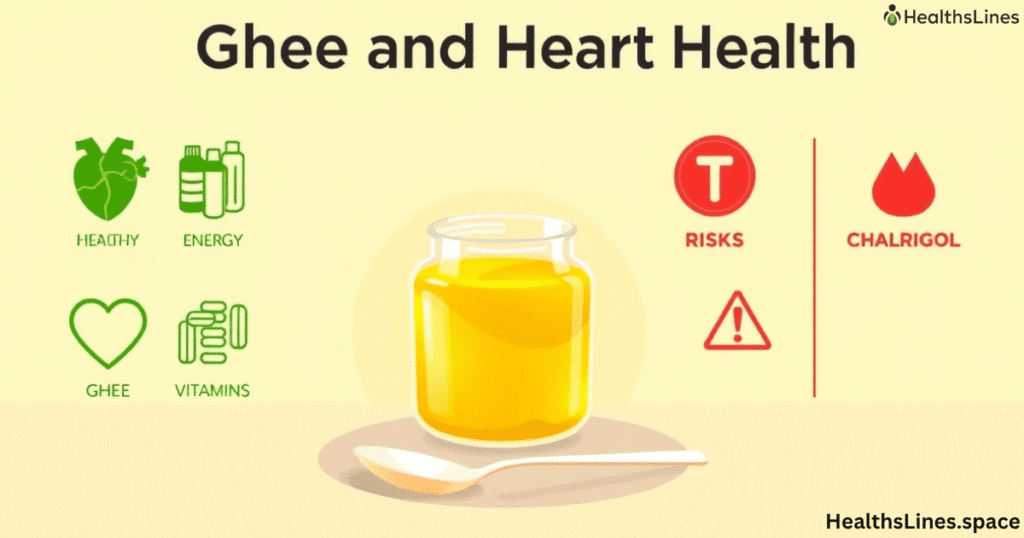Cooking oils may look the same on the shelf, but they don’t act the same in your body. The debate of avocado oil vs olive oil has grown louder as both oils are praised for their health benefits. They look alike, share a smooth taste, and are rich in healthy fats, but a closer look reveals key differences that matter to your health. The surprising factor is not only what’s inside the oil but also how you use it in your kitchen. This article dives deep into avocado oil benefits and olive oil benefits, compares their nutrition, explains how cooking methods change their health effects, and shows you when to pick one over the other.
People often ask, is avocado oil better than olive oil? The truth is not simple because the answer depends on whether you’re drizzling it over a salad, sautéing vegetables, or frying fish. Both oils carry unique nutrients and powerful antioxidants, and both can support your heart, skin, and overall health. To make a clear choice, you need to look at the nutrition, the smoke point, and the proven health benefits backed by research. Let’s explore this healthy cooking oils comparison in detail.
Key Takeaway at a Glance
Choosing between avocado oil vs olive oil for cooking or raw use depends on how you plan to eat it. Both oils have unique qualities that make them shine in different areas. Olive oil, especially extra virgin, is packed with polyphenols that lower inflammation and support heart health. Avocado oil has a higher smoke point, making it better for frying and grilling without breaking down into harmful compounds.
| Factor | Avocado Oil | Olive Oil |
| Calories (per tbsp) | 120 | 119 |
| Monounsaturated Fats | 10 g | 10 g |
| Polyunsaturated Fats | 2 g | 1.5 g |
| Saturated Fats | 2 g | 2 g |
| Vitamin E | Higher | Moderate |
| Antioxidants | Lutein | Polyphenols |
| Smoke Point | 480°F (High) | 375°F (Moderate) |
| Best Use | Frying, grilling | Salads, sautéing |
The takeaway is simple. Both oils are healthy, but they serve different purposes. Keeping both in your kitchen ensures you get the best of both worlds.
Nutrition Face-Off: Avocado Oil vs Olive Oil
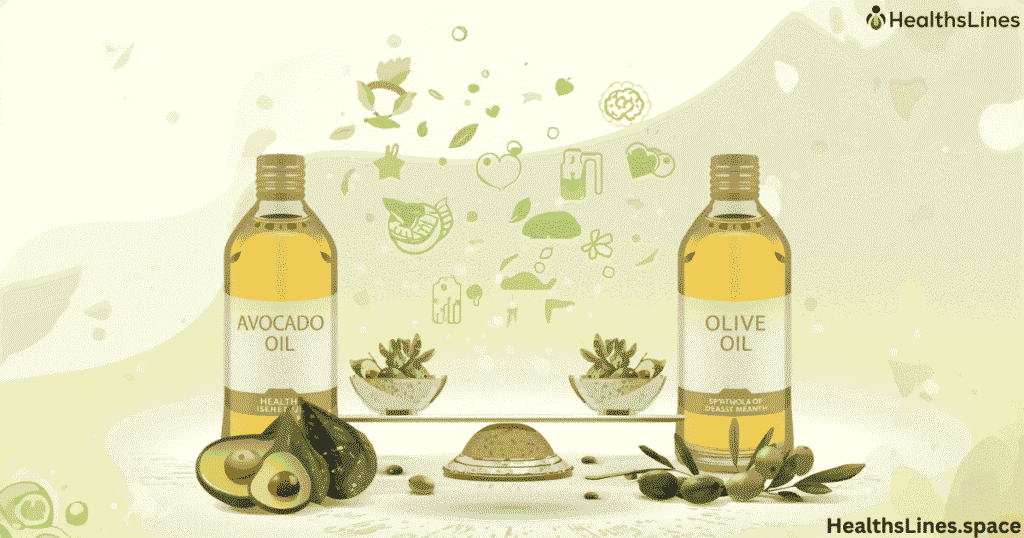
When comparing avocado oil vs olive oil nutrition, both oils deliver roughly the same calories, which is about 120 per tablespoon. This means neither oil has an edge in terms of weight loss just by looking at calories. The difference lies in their nutrient profile. Both oils are rich in monounsaturated fats, the heart-healthy fats that help raise HDL (good cholesterol) and lower LDL (bad cholesterol). These fats are linked with better heart health and reduced risk of chronic disease.
Avocado oil contains more vitamin E, which supports skin repair, boosts immunity, and protects cells from damage. It also contains lutein, an antioxidant known for protecting eye health and reducing the risk of age-related macular degeneration. Olive oil, particularly extra virgin olive oil, is richer in polyphenols, plant compounds that act as strong antioxidants. These polyphenols lower inflammation and protect against oxidative stress, which is a major factor in heart disease and aging. Both oils therefore bring unique nutritional benefits to the table.
Smoke Point and Cooking Method: The Real Game Changer
The most surprising factor in the olive oil vs avocado oil health debate is how heat changes the oils. This is where the smoke point comes in. The smoke point is the temperature at which an oil starts breaking down and releasing harmful compounds. Olive oil has a smoke point of around 375°F, which is fine for sautéing or baking but not for deep frying. Avocado oil’s smoke point reaches up to 480°F, making it one of the best oils for high-heat cooking.
When it comes to avocado oil vs olive oil for frying, avocado oil is the clear winner. It stays stable under high heat, making it safer for frying, grilling, and roasting. Olive oil, on the other hand, is better used in salad dressings, drizzled over vegetables, or lightly sautéed. A simple way to remember this is: olive oil shines raw, avocado oil shines hot.
Here’s a diagram that illustrates the difference in smoke points among popular oils:
Smoke Point Comparison (°F)
Avocado Oil 480°F
Olive Oil (EVOO) 375°F
Canola Oil 400°F
Coconut Oil 350°F
Butter 300°F
This makes avocado oil the safer choice when cooking with intense heat, while olive oil keeps its benefits best in cold or low-heat dishes.
Olive Oil: The Mediterranean Secret
When you think about the Mediterranean diet olive oil is always at the center of the story. For thousands of years, people living in countries like Greece, Italy, and Spain have used olive oil not only as food but as medicine. Extra virgin olive oil, known as EVOO, is packed with polyphenols that protect your cells from damage. These powerful plant compounds fight inflammation in the same way that natural anti-inflammatory drugs do, but without side effects. Olive oil also contains oleocanthal, which gives it a slightly peppery taste. This compound has been shown to reduce inflammation markers in the body, making olive oil a truly anti-inflammatory oil.
Scientific research supports the long tradition of using olive oil. A large study published in the New England Journal of Medicine showed that people following a Mediterranean diet rich in olive oil reduced their risk of heart attack and stroke by nearly 30 percent. The reason is simple. Olive oil improves cholesterol balance, lowers LDL, raises HDL, and keeps blood vessels flexible. These factors make it one of the most heart-healthy oils available. The olive oil benefits also extend beyond heart health. It supports brain function, slows signs of aging, and may even reduce the risk of some cancers. With all these proven effects, olive oil has earned its place as the Mediterranean secret to long life.
Avocado Oil: The Modern Nutrient Powerhouse
While olive oil carries ancient history, avocado oil benefits make it a modern favorite. Rich in vitamin E and lutein, it supports skin and eye health from oils. Vitamin E keeps your skin soft and helps wounds heal, while lutein protects your vision and reduces eye strain. This makes avocado oil especially appealing in skincare routines, as it moisturizes and nourishes the skin when applied topically.
In addition, studies show avocado oil can improve cholesterol levels. Research published in the Journal of Nutrition found that people who replaced saturated fats with avocado oil lowered LDL cholesterol and increased HDL cholesterol. This is why the avocado oil vs olive oil cholesterol debate is important. Both oils help, but avocado oil may slightly edge ahead in cholesterol improvement. Its stability under heat also means more nutrients survive cooking, adding to its benefits.
Which Oil Is Better for You?
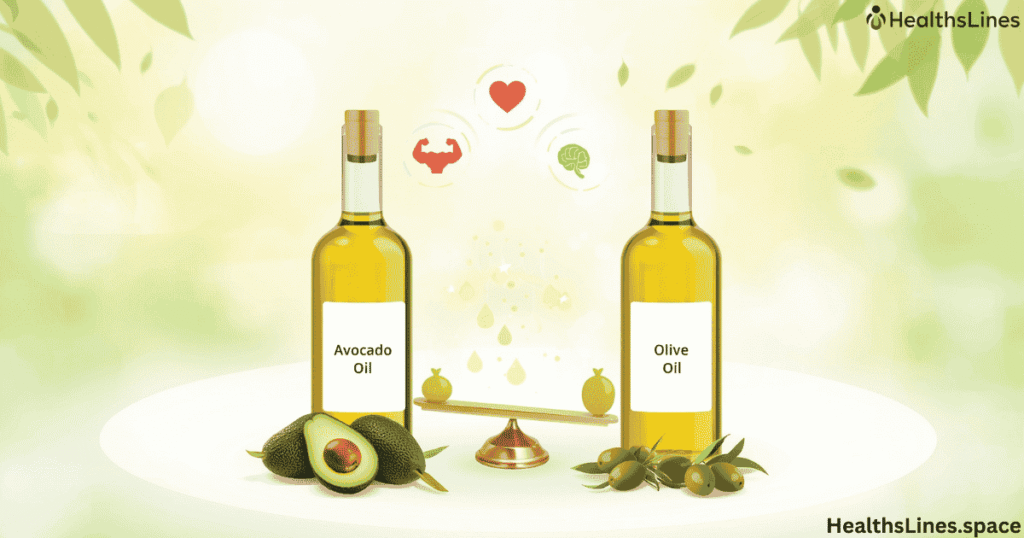
Many people wonder, is avocado oil better than olive oil? The truth is that it depends on your needs. If you’re dressing a salad, olive oil with its rich polyphenols and strong flavor is the best choice. If you’re searing meat or roasting vegetables at high heat, avocado oil’s stability makes it the better pick.
Here’s a simple comparison of when to use each oil:
| Best Use | Avocado Oil | Olive Oil |
| Frying | ✔ | ✖ |
| Grilling | ✔ | ✖ |
| Roasting | ✔ | ✖ |
| Salad Dressing | ✖ | ✔ |
| Dips & Marinades | ✖ | ✔ |
| Baking | ✔ | ✔ |
The healthiest approach is not to choose one over the other but to keep both oils in your kitchen. That way, you enjoy the olive oil vs avocado oil antioxidants and the full range of their health benefits.
Conclusion
The debate of avocado oil vs olive oil has no single winner. Both are nutrient-dense, both protect the heart, and both offer unique antioxidants. The deciding factor is how you use them. Olive oil works best in cold or low-heat dishes, while avocado oil holds strong in frying and grilling. By using each oil in its proper place, you get the full spectrum of benefits and enjoy tastier, healthier meals.
Nutrition experts agree that rotating oils is better than sticking to just one. So instead of asking which is better, the real question is how you can use both to support your health. With a balance of both oils, you enjoy protection for your heart, glowing skin, sharper vision, and delicious meals prepared the right way.
